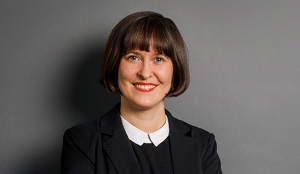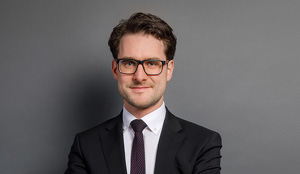Germany
Status
Adopted
Explanatory note re status
The German Implementation Act entered into force on 7th of June 2021, with the following exception: The German Copyright Service Provider Act (Urheberrechts-Diensteanbieter-Gesetz, "UrhDaG") entered into force on 1st of August 2021.
Implementation Act
Act to adapt copyright law to the requirements of the Digital Single Market ("Gesetz zur Anpassung des Urheberrechts an die Erfordernisse des digitalen Binnenmarktes")
(Envisaged) Implementation Date
Essentially, the Act entered into force on 7th of June 2021. The UrhDaG became effective on 1st of August 2021, a few weeks after the expiry of the implementation deadline of the DSM-Dir.
Approach to Implementation
Article 17 DSM-Dir. was implemented by introducing a separate new law - the UrhDaG. The other provisions of the DSM-Directive were implemented by amendments to the existing Copyright Act and Collecting Societies Act.
Next steps
N/A, as the DSM-Dir. is already fully implemented.
Noteworthy points arising from legislative changes
The German register of out-of-commerce works will close on 31 December 2025. Until then the current regime will apply for all registered works.
The amendments implementing Art.18-23 DSM-Dir. will be accompanied by various transitional provisions. In principle, the new rules will not apply to contracts concluded before 7th of June 2021 unless they concern the contractual relationship in the period after the conclusion, such as the right to further participation of the author or the right of recall due to non-exercise.
Articles 3 & 4: The Text and Data Mining Exceptions
The Government Implementation Act introduces Sec. 44b into the German Copyright Act and supplements Sec 60d German Copyright Act concerning Text and Data Mining in order to implement Articles 3 and 4 of the Directive.
The wording of Sec. 60d had been altered for a better understanding under German law; contentwise Sec. 44b and 60d comply with the Directive.
Also, Sec. 60h para. 2 no. 3, Sec. 69d para. 4, Sec. 87c para. 1 sentence 1 nos. 4 and 5 as well as Sec. 95b para 1 sentence 1 no. 1 of the German Copyright Act are supplemented with regard to Text and Data Mining
Article 15: The Press Publishers' Right
The Implementation Act provides for the neighboring right of press publishers in Sec. 87f to 87k German Copyright Act. Although, Art. 15 DSM-Dir. is structurally based on the existing German copyright law, it differs from it in many details. As a result, the new provisions are very close to the wording of Art. 15 DSM-Dir.
The new Sec. 87g(2) German Copyright Act strictly complies with the wording of Art. 15(1) DSM-Dir. which defines the limits of the scope of protection of the neighboring right of press publishers. The Implementation Act generally allows the "use of individual words or very shorts abstracts". It does not specify these terms any further.
Sec. 87k (1) sentence 1 German Copyright Act provides that authors must receive an appropriate share of the press publisher's income, at least one third. Sec. 87k (1) sentence 2 German Copyright Act regulates that, the parties may only deviate from sentence 1 to the disadvantage of the author by a remuneration rule according to Sec. 36 German Copyright Act or by a collective agreement.
Article 17: Platform Liability Provisions
The Government Implementation Act transposes Art. 17 DSM Dir. by introducing a new act called the Copyright Service Provider Act (Urheberrecht-Diensteanbieter-Gesetz, "UrhDaG"). This act largely implements Article 17 on a one-to-one basis. Specific German features include the following:
The UrhDaG explicitly allows public communication (and associated reproductions) of works on UGC-platforms to the extent covered by exceptions and limitations provided within the German Copyright Act (so called "legally allowed uses"), including the new exception for caricature, parody and pastiche, cf. Sec. 5(1) No. 2 UrhDaG. Sec. 5(2) Sentence 1 UrhDaG restricts the service providers' obligation to pay remuneration for caricatures, parodies and pastiches statutorily permitted by Sec. 51a UrhG. Other statutorily permitted uses, for example quotations or uses within the scope of the freedom of panorama, remain free of remuneration even when made available via upload platforms. The service provider is also obliged to enable the user to mark the uploaded content as legally allowed use (so-called "Pre-flagging"), cf. Sec. 11(1) No. 3 UrhDaG.
In addition, such communication (and reproduction) will be generally allowed if the content contains less than 50% of third parties content and is uploaded for "non-commercial purposes or generation of insignificant revenue" (cf. Sec. 9(2) and Sec.10 UrhGDaG) regarding:
- up to 15 seconds of a film or moving picture,
- up to 15 seconds of an audio track,
- up to 160 characters of text
- photos and graphics up to 125 kilobytes.
However, the service provider has to pay a fair remuneration for such uses (so called "presumably allowed uses") to a collective management society, cf. Sec. 12(1) UrhDaG.
The Implementation Act introduces the new procedural instrument of "presumed allowed uses". UGC will initially go online if it fulfills the typified requirements of the "presumed allowed uses" pursuant to Sec. 9-11 UrhDaG. Accordingly, the content must contain less than 50% of a third person's work and (1) qualify as a minor use as described above or (2) be flagged as legally allowed (e.g. as a caricature). In this case, however, the affected right holder receives a notification and can have the legality of a presumed allowed use reviewed in a complaint procedure after the upload has taken place. However, the German legislator added a privilege for rightholders of cinematographic works and live broadcasts of sporting events: Provided that the rightholder expressly requests it and provides the respective necessary technical information, the mechanism from Sec. 9 to 11 UrhDaG-E is temporarily suspended until the completion of the first communication to the public of a cinematographic work or moving image such as the transmission of live sporting events. In special cases of abuse, right holders can immediately block the use ("Red-Button" procedure).
It is also important to note that a service provider is only liable for damages under copyright law for the communication to the public of presumed allowed uses following a complaint procedure if he has culpably breached the obligations under Sec. 14 UrhDaG in conducting the complaint procedure. Sec. 13(3) UrhDaG was amended by sentence 2 to the effect that infringements of moral rights can be prosecuted at any time - i.e. also within the scope of application of Sec. 9 to 11 UrhDaG - by way of simple blocking pursuant to Sec. 8(1) UrhDaG.If there is no room for the assumption of a presumed allowed use and in case of a blocking request in place, the UCG will not go online or will be blocked. In this case, the user also has access to the complaint procedure. Regardless of who files the complaint (user or rights holder), clerks of the platform provider must decide within one week (cf. Sec. 14(3) No. 3 UrhDaG) whether the content in question will be made available on the platform or not.
The UrhDaG itself does not mandate the use of upload filters. It merely speaks of "automated procedures" pursuant to Sec. 9-11 UrhDaG, but the act makes them still necessary.
Chapter 3 Overview
Unknown
Article 18:
Art. 18 DSM-Dir. is already largely reflected in Sec. 32 et seq. German Copyright Act. The Draft Bill in particular contains the following changes:
- Beyond the minimum harmonisation of Art. 18 DSM.Dir., the Implementation Act provides in a newly added Sec. 32(2) sentence 2 German Copyright Act that lump-sum payments are only admissible if they ensure an appropriate participation of the author in the anticipated total remuneration of the use and are justified by special circumstances of the industry.
- The Draft Bill lowers the requirements for the statutory claim for further remuneration ("bestseller clause") in Sec. 32a German Copyright Act by replacing the former term "conspicuious disproportion" with the term "disproportionate".
- The liability of the further licensing chain remains unchanged, cf. Sec. 32a (2) UrhG: Sub-licensees are thus directly liable to the author or performing artist for any disproportion that only arises in the further licensing chain. Although, this is not required by Art. 20 of the DSM-Dir., the current provision can be maintained because Art. 20 DSM-Dir. only has a minimum harmonising effect.
Article 19: Transparency Obligations
The Governement Implementation Act transposes Art. 19 DSM-Dir. into the transparency provisions of Sec. 32d, 32e UrhG as follows:
- The author's or performing artist's right to information is changed into a contractual partner's obligation to inform. The contracting partner must provide sufficient information about the proceeds and advantages of the use of the work in the further licensing chain.
- This obligation ony exists as long as the essential use of the work continues.
- In contrast to the earlier version of Sec. 32e German Copyright Act, the right to information against third parties is subsidiary to obtaining the information from the direct contractual partner (Sec. 32e(1) German Copyright Act).
Other Information
The Government Implementation Act will also transpose the Online SatCab Directive (EU) 2019/789, which promotes cross-border access to broadcasts for the European civil society.
In addition, it includes provisions for collective licenses with extended effect (Extended Collective Licenses, ECL) and for the use of works that are "not available". These provisions replace the previous provisions on works that are out of print. In this way, users of works can acquire comprehensive licenses from collecting societies at low transaction costs.
The Government Implementation Act addresses numerous further changes, including a new statutory exception for caricatures, parodies and pastiches and it implements the European Court of Justice's decision in the "Metall auf Metall" case dated 29th of July 2019, C 476/17, which ruled Sec. 24 of the German Copyright Act to not be compliant with EU law.


